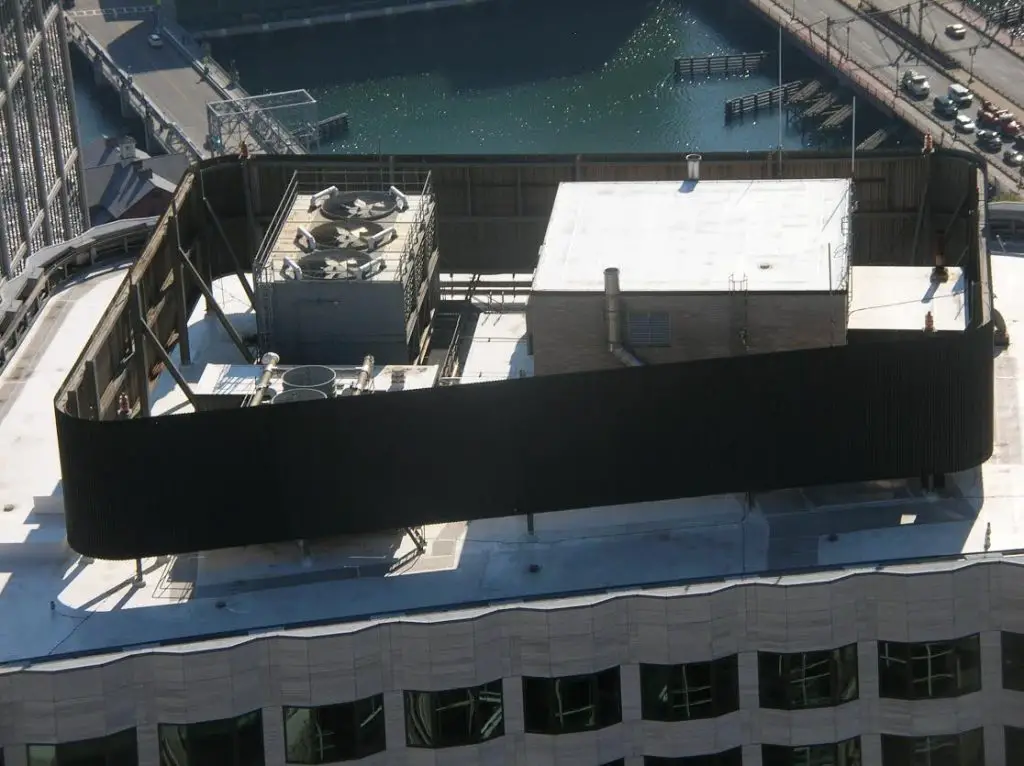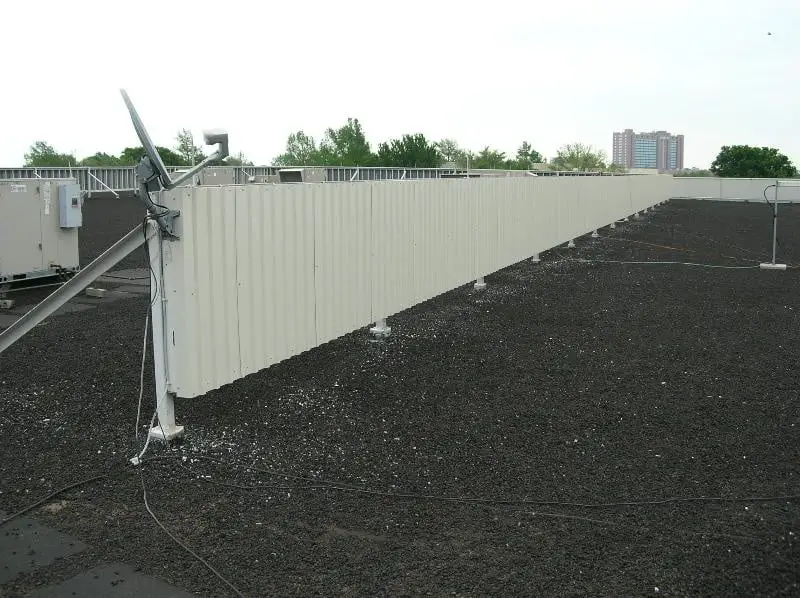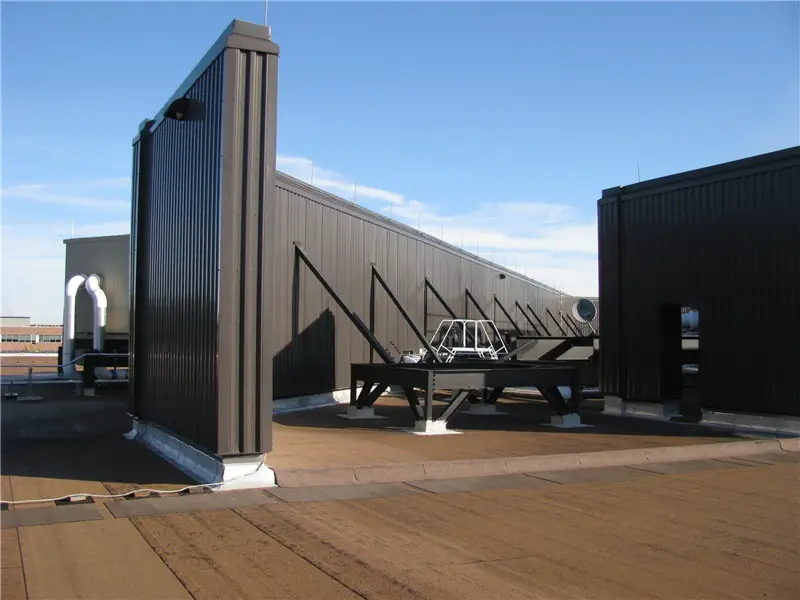Rooftop Screen Walls • Useful Facts & Guidelines
By Jack Gray, Roof Online Editor • Updated August 6, 2024

Table of Contents
- Purpose of Rooftop Equipment Screens
- Equipment Screen Construction
- Building Codes and Equipment Screens
- Issues with Rooftop Equipment Screens
- Related Articles
- External Sources & References for Equipment Screen Information

Purpose of Rooftop Equipment Screens
A rooftop equipment screen is a non-structural barrier installed on a roof to conceal HVAC or other rooftop equipment, or to protect the equipment from potentially damaging wind loads.
The use of equipment screens for aesthetic reasons is more common on low-rise buildings where people might see the equipment from the ground, while their use as protection from the wind is more common on high-rise buildings where wind loads are greater.
Larger or longer rooftop equipment screens are commonly called “screen walls” by roofing professionals.
Equipment Screen Construction
The most common method of equipment screen construction uses sheet metal panels attached to metal posts, with the posts penetrating the roof membrane and anchored to the roof deck.
Equipment screens which use non-penetrating supports, secured by concrete or steel weights, are also available. Occasionally, and where sufficient structural support exists, masonry or wood-framed walls will be built on the roof to serve as screens.
Building Codes and Equipment Screens
The International Building Code limits the height of rooftop equipment screens to 18 feet (5486 mm), except on buildings of Type IA construction.

Issues with Rooftop Equipment Screens
Due to the large number of roof penetrations typically required by an equipment screen, they tend to be a common source of roof leaks.
Because of this, the flashings or pitch pans at these penetrations should be inspected regularly as part of a preventative maintenance program.
Related Articles
External Sources & References for Equipment Screen Information
1. General: We like this little article/blog post, “Rooftop Equipment Screens” over on Architekwiki. It gives you an architect’s opinion on how equipment screen walls can be used to improve a building’s aesthetics along with some design and construction detail information. (If the link doesn’t send you to the right page, just search for “rooftop equipment screens” on the site’s home page.)
2. Building Codes: “1511.6 Mechanical Equipment Screens” from the 2021 International Building Code. Available at the UpCodes website. Always check with your local authority to find out which code is in effect in your jurisdiction.
3. Technical: “Rooftop Equipment Wind Load And Its Mitigation For Buildings In Hurricane Prone Regions” discusses research and testing funded by the State of Florida Division of Emergency Management in partnership with the International Hurricane Research Center – Florida International University. Very useful information…”The aim of this research is to develop mitigation techniques that will reduce the wind loading on mechanical rooftop equipment and the forces transferred to the roof supporting structure by the equipment through the use of aerodynamic retrofits such as installation of wind screens.”